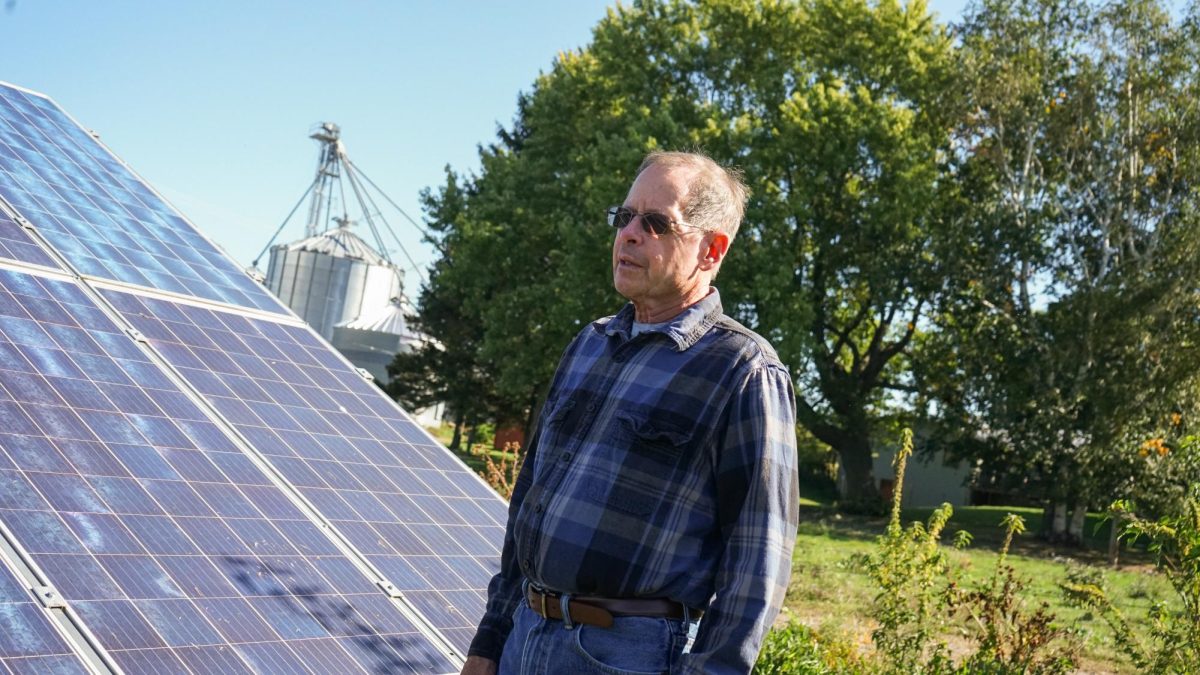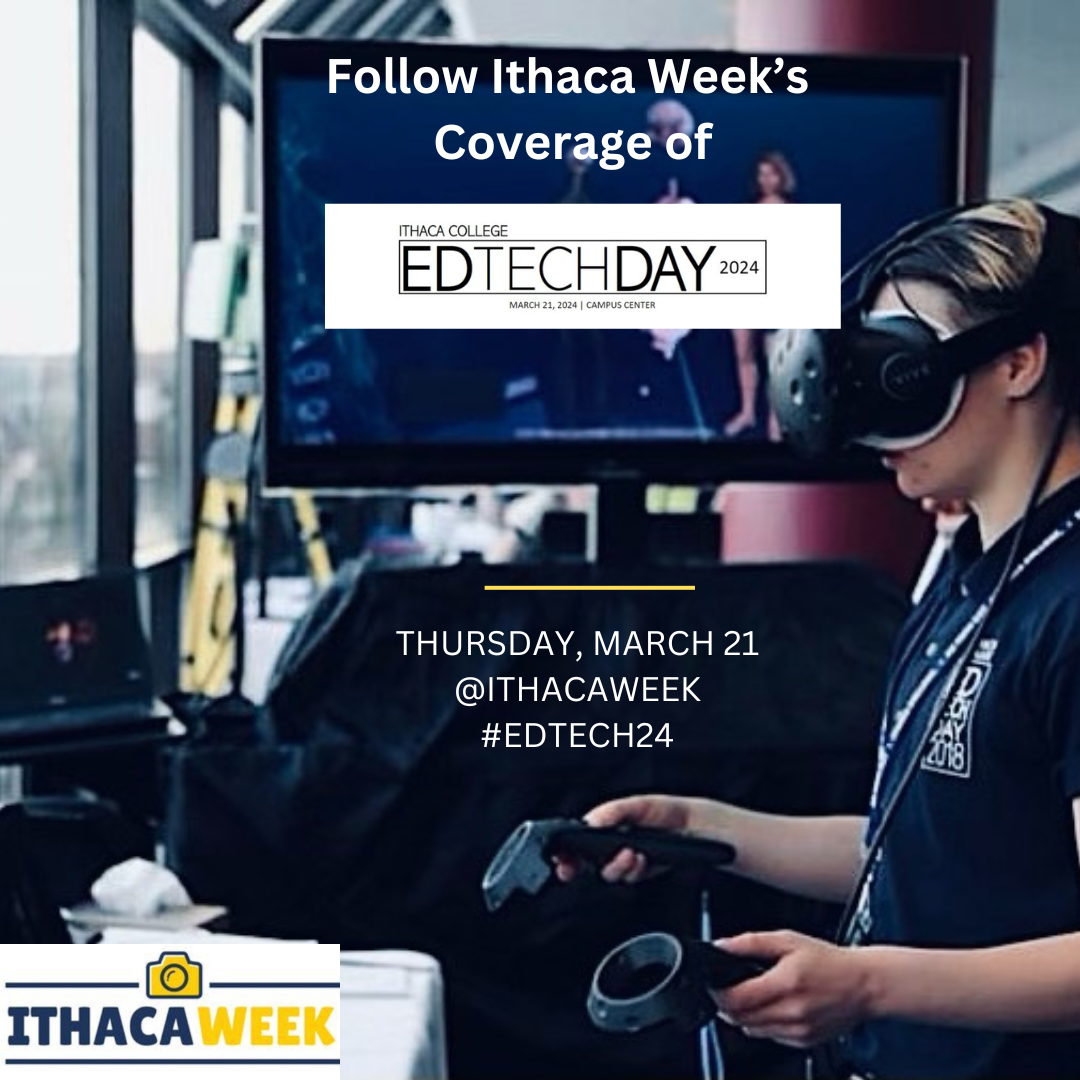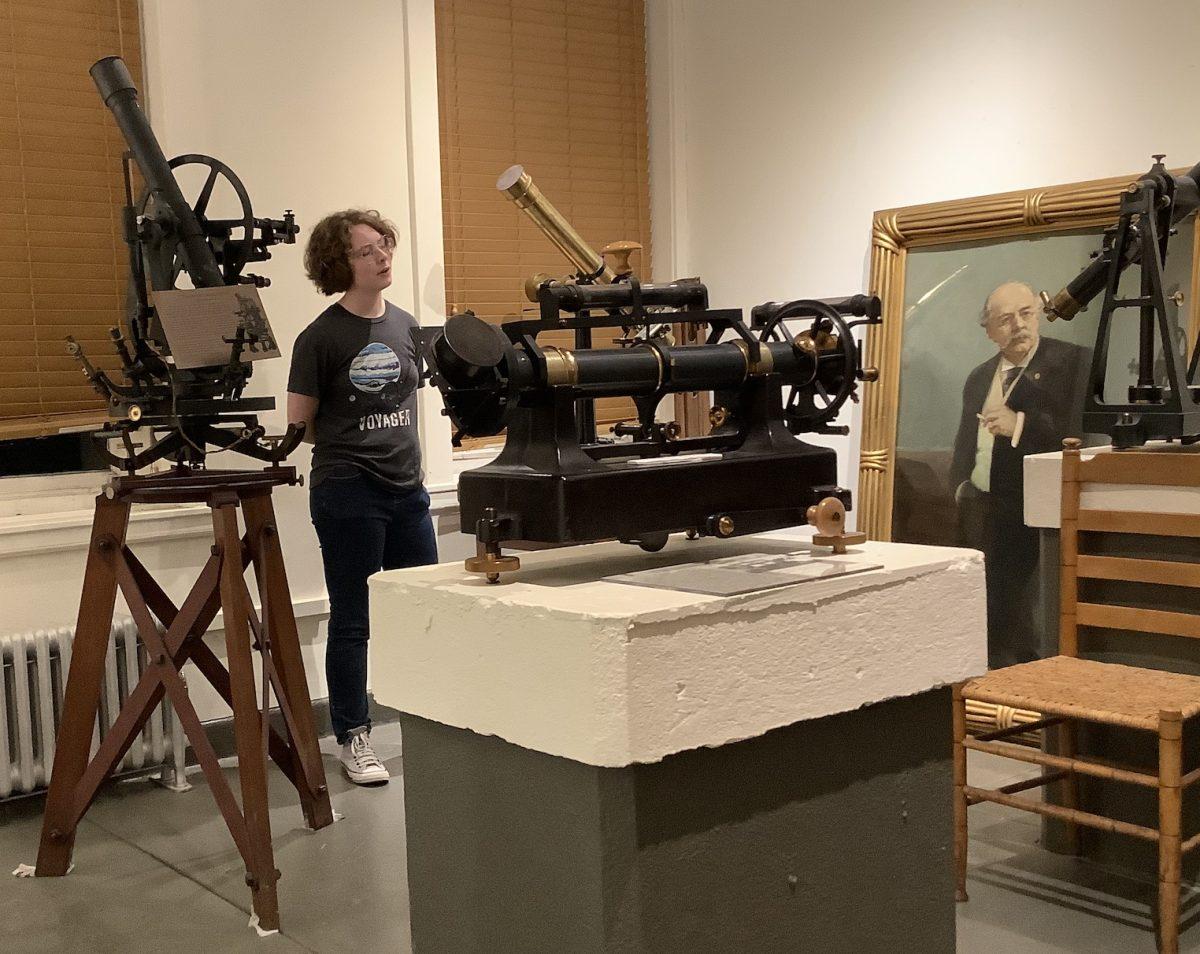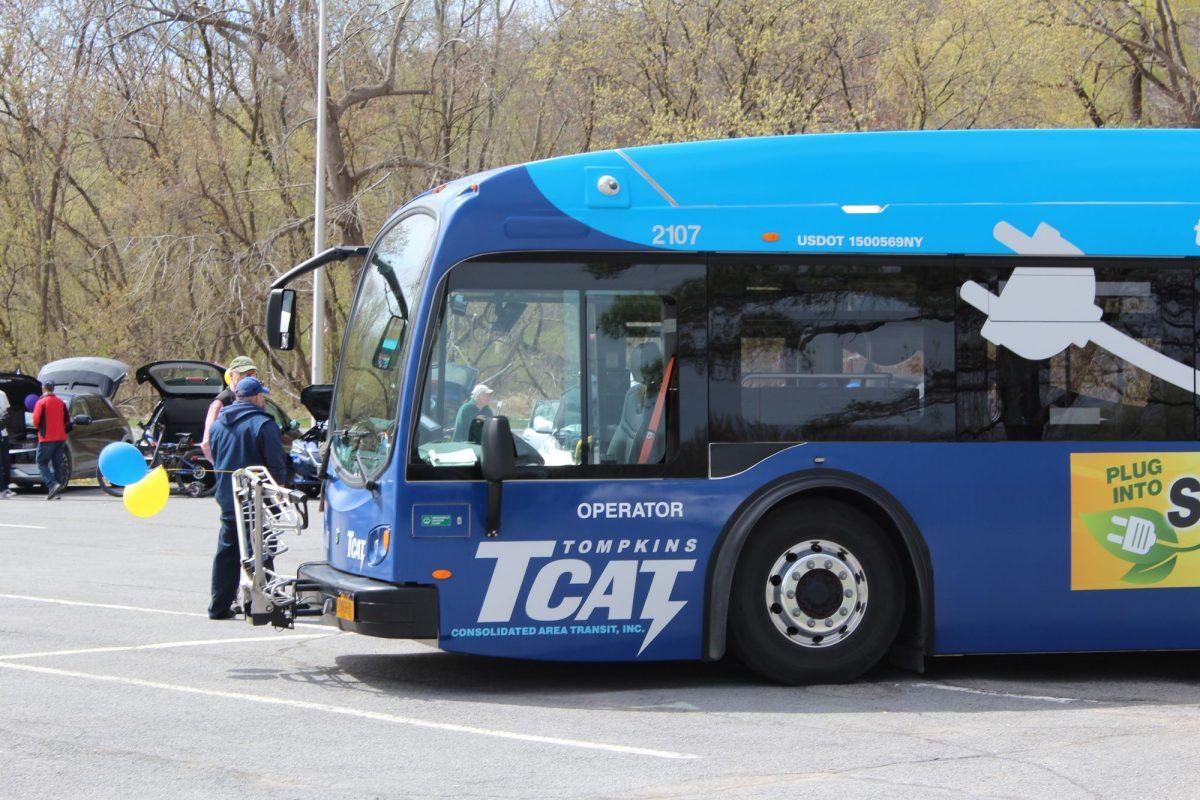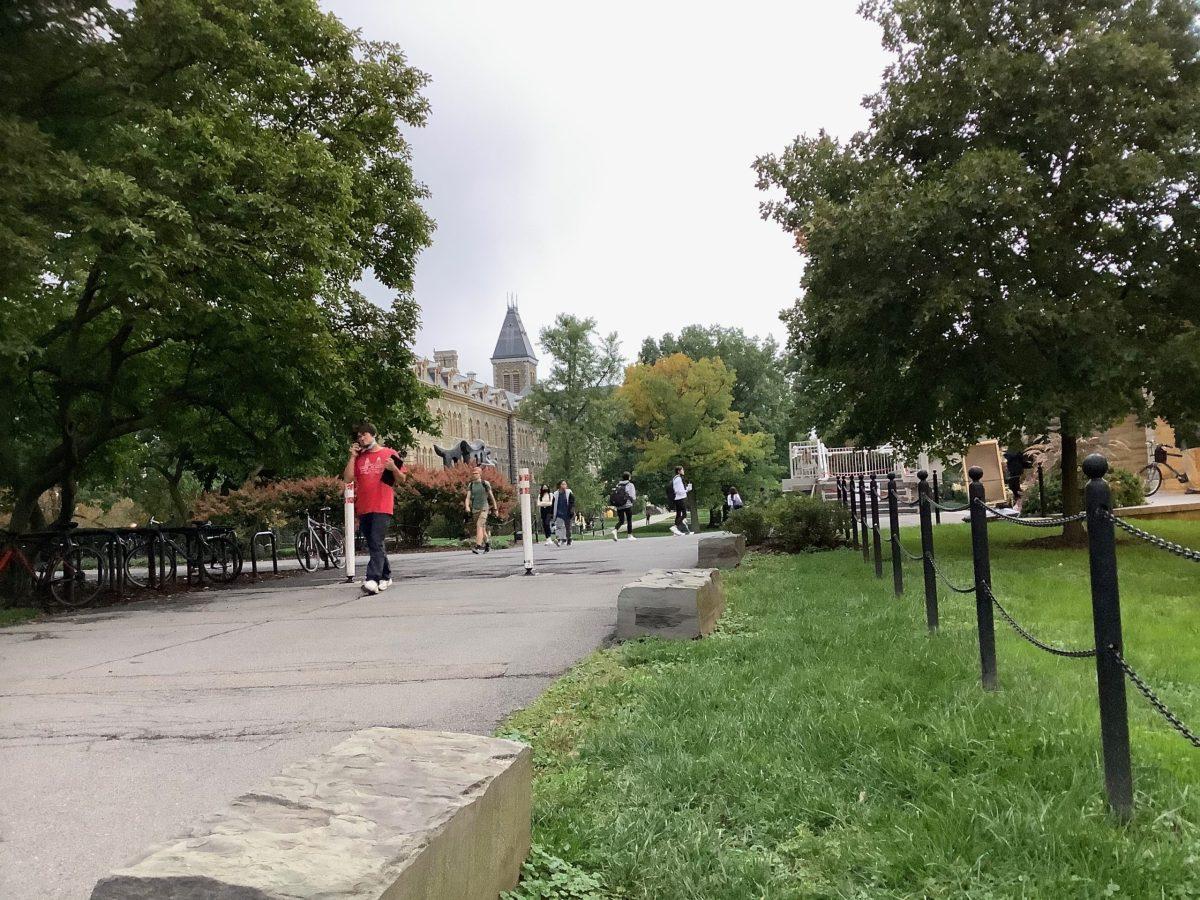Cornell Electric Vehicles, ca student group at Cornell with over 60 members across teams, majors, and projects, is “dedicated to designing the world’s most fuel efficient vehicle”.
From April 10-13, senior members of the team will be heading to the Indianapolis Motor Speedway to compete against other university groups in the Shell Eco-Marathon. At the event, vehicles will be traveling a set distance aiming to use the least amount of energy possible for its vehicle class and energy category, not speed. Cornell Electric Vehicles refers to it as the “test of ultimate fuel efficiency”. The race also features off-track awards for vehicle design, technical innovation, and safety.
“It’s been really a privilege of mine to see this car get completed throughout the years, but at the same time, we’re a little bit anxious because it has been years since we last competed,“ said Jojo Liang, a mechanical lead on the project.
Cornell Electric Vehicles’ current car, the lightweight “Cuckoo Caravan”, has been worked on for over two years in the absence of a competition since 2019 due to the COVID-19 pandemic. With the race under a week away, the student group is performing final tests and preparing to transport its car so that it can make a ten mile trip of four laps on the famous raceway in a maximum of 40 minutes. According to the team, the majority of the parts in the largely carbon-fiber vehicle are custom made.
Cornell Electric Vehicles was founded in 2014 as Resistance Racing and has since competed twice in the eco-marathon. The last time they competed at the event in 2019, they placed third in the electric battery prototype category with their “Kiwi Kruiser”.
The Need for Efficient EVs
“A lot of other competitions are based on the speed of the car like Formula SAE; their goal is just to make the fastest car. We’re trying to make the most efficient car,” explained Reid Fleishman, a member of the software and operations subteams. “I think that’s actually even more important in some ways, especially with the rise of electric vehicles”.
Reid says right now, many potential consumers fear that electric vehicles are not efficient enough and will not provide the range required for long journeys. Perception and other barriers such as cost and infrastructure have prevented wider adoption for EVs so far, but that may change soon.
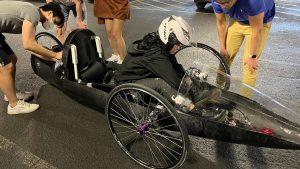
Guillermo Metz, the energy team leader of the Tompkins County Cornell Cooperative Extension, says that their efforts regarding EVs have shifted to lowering these barriers in addition to their promotion following initial efforts a few years ago.
“At that time, it was early adopters, it was a lot of folks who could afford electric vehicles, at the sort of high price points that they were coming in at the time,” Metz said. “That really raised our eyes to ‘Okay, so that’s great, we want to get more general adoption of electric vehicles but we also need to work on making electric vehicles more accessible to everybody.’“
New York State features various incentives for purchasing electric vehicles as well as cost estimate tools for consumers. The Cornell Cooperative Extension is undertaking education and accessibility efforts to push for the adoption of new and used EVs and Tompkins County has made efforts to increase the share of electric vehicles among its own fleet. Recently, nearly $1.5 million in federal funding was given to Cornell University for research and development of a wireless charging system for electric vehicles.
In the face of environmental concerns and fuel costs driving demand, newer companies like Tesla and legacy automobile companies growing the availability of electric vehicles, more and more Americans are now looking at the potential of electric vehicles. Cars.com, a website that compiles car listings online, reported that EV searches are up by 173% over the month of March, likely due to heightened gas prices. Additionally, recent reports have shown emissions benefits over traditional cars even when charged with electric grids powered by non-green sources.
Student Benefit and Real-World Results
Cornell Electric Vehicles has taken on the mission of applying knowledge from classes to the issues of sustainable design and electric mobility, and the upcoming competition will put that calling to the test.
Liang and her teammates say that as they put on the last tweaks, it has been taxing but incredibly exciting.
“I’ve never seen our team so motivated,” said Liang. “Our hours put in are embodied in a mess right here, we’re kind of just pushing the last towards the finish line the last little bit to get our car ready. But at the same time, I think this is the most confident our team has ever been.”
Cornell Electric Vehicles is divided into mechanical, electrical, software, and operations subteams. Work on the car is done every Saturday in Upson Hall on Cornell’s campus with each subteam having its own individual work sessions and team leaders meet in an additional weekly session. The organization requires a lot of dedication from its members, but those working on the car said that dedication has been integral to their college experience.
“This team is the majority of my life right now”, Liang said. “I’m realizing that this sort of hands-on experience to get to solve these really open-ended problems on a physical system like this is what’s best preparing me for the industry that I want to go into”.
Fleishman said that even as a freshman, he was able to get a lot of learning opportunities through working towards the competition. His role involves using software to simulate the vehicle’s performance using data gathered from hardware attached to the car that connects to a smartphone application.
“I’ve learned a lot about how software works to connect,” Fleishman said. “I always built apps and things like that; I never understood how you connect something like that to a physical vehicle.”
In the future, the Cornell Electric Vehicles team says they will be working to increase the autonomous functionality of their vehicle and make progress on an urban concept vehicle.

